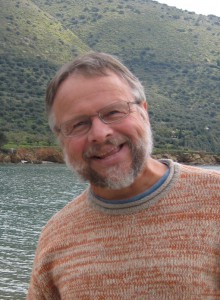Scientific Advisory CouncilThe Scientific Advisory Council (SAC) provides independent advice to ACS staff and board members on the technical bases of public policy, classification of species, life history, abundance estimates, and descriptions of individual cetacean species. The SAC also evaluates the scientific merits of applications received in response to requests for proposals (RFPs) for grants-in-aid of research, and interacts with media and the lay community on cetacean-related issues and current events on behalf of ACS. Members
Dr. Bob Brownell, Jr. is a Senior Scientist for International Protected Resources with NOAA Fisheries at the Southwest Fisheries Science Center. He has conducted research on the biology and conservation of whales, dolphins and porpoises throughout the world. Dr. Brownell has published over 200 papers, book chapters, and documents on various aspects of whale, dolphin, and porpoise biology, conservation, and management. Bob has been a member of the US delegation to the International Whaling Commission since 1975 and served as Vice-Chair and Chair of the IWC’s Scientific Committee from 1985 to 1991. He also served as President of The Society for Marine Mammalogy from 1987 to 1989, and Chief of Marine Mammal Research for the US Fish and Wildlife Service from the late 1970s to 1991. Between 1991 and 1993, he was the Science Advisor to the Assistant Secretary for Oceans at the US Department of State. In 1993, he became the Director of the Marine Mammal Division at the SWFSC in La Jolla, California, and then took up his present position two years ago. He has served three terms as a Scientific Advisor to the US Marine Mammal Commission.
John Calambokidis is a Research Biologist and a founder of Cascadia Research, a non-profit research organization formed in 1979 based in Olympia, Washington. He periodically (1991-2010) serves as an Adjunct Faculty at Evergreen State College teaching a course on marine mammals. His primary interests are the biology of marine mammals and the impacts of humans. As a Senior Research Biologist at Cascadia Research he has served as Project Director of over 100 projects. He has authored two books on marine mammals (the award-winning Guide to Marine Mammals of Greater Puget Sound from Island Publishers, with R. Osborne and E.M. Dorsey and Blue Whalesfrom Voyageur Press, with G.H. Steiger) as well as more than 150 publications in scientific journals and technical reports. John has conducted studies on a variety of marine mammals from Central America to Alaska, and has directed long-term research on the status, movements, and underwater behavior of blue, humpback, and gray whales. His work has been covered on shows by Discovery Channel and others and is featured in a National Geographic TV special and magazine article in 2009.
Dr. Christopher Clark is the Imogene P. Johnson Director of the Bioacoustics Research Program at the Cornell Lab and Senior Scientist in the Department of Neurobiology & Behavior at Cornell University. He holds advanced degrees in electrical engineering (M.S.E.E., SUNY-Stony Brook, 1974) and biology (Ph.D., SUNY-Stony Brook, 1980). As an NIH postdoctoral fellow and assistant professor at The Rockefeller University, he conducted research on vocal learning in songbirds. His research interests concentrate on animal acoustic communication with a particular focus on the development and application of advanced acoustic methods for scientific conservation of marine mammals. He leads the Bioacoustics Research Program in the design, development and application of computer-based systems for quantitative analysis of animal vocalizations, and acoustic techniques to detect, locate, track and census free-ranging animals. Scientists and engineers in the Bioacoustics Research Program (http://www.birds.cornell.edu/brp/) conduct a multitude of basic scientific and applied research projects around the globe on a diversity of species and taxonomic groups. These efforts are directed at understanding the hows and whys of animal acoustic communication, often with a special focus on determining the impacts of human sound-generating activities on individuals and populations over a wide variety of spatial, spectral and temporal scales. These efforts have led to the synthesis of acoustic ecology and acoustic habitat concepts. These concepts are especially applicable to marine organisms, which have evolved and live in a habitat dominated by sound, and require a healthy acoustic habitat for survival.
Dr. John Ford is the head of the Cetacean Research Program at the Pacific Biological Station, Nanaimo, British Columbia. Prior to his move to Fisheries and Oceans Canada in 2001, John was senior marine mammal scientist and Director of Research and Conservation at the Vancouver Aquarium. He is also an Adjunct Professor in the Fisheries Centre and Department of Zoology, University of British Columbia. Dr. Ford has been involved in field studies of marine mammals off Canada’s west coast since the mid-1970s. His areas of research include the life history, ecology, behavior, and acoustic communication of cetaceans, especially killer whales. In recent years, his research has focused on the conservation status of cetaceans listed under Canada’s Species-at-Risk Act and involves assessments of population abundance and distribution, critical habitats, and foraging ecology of west coast whales.
Ari S. Friedlaender PhD, Associate Professor, Marine Mammal Institute, Oregon State University. Ari is an ecologist with a primary interest in the understanding the relationship between the foraging behavior of marine mammals and their prey. Ari works on a wide range of marine mammal species including baleen and toothed whales and dolphins across a range of geographic regions. Ari has long-term ecological research projects ongoing in Alaska, California, Massachusetts, North Carolina, and Antarctica. Ari has helped in the development of tag technology and analytical and visualization tools to better understand the underwater movements and behaviors of marine mammals. In Antarctica, Ari is part of the Long-Term Ecological Research program at Palmer Station to better understand the ecological roles of cetaceans in a rapidly changing environment. In Alaskaand Massachusetts, Ari’s research focuses on variability in the foraging strategies of humpback whales in relation to changes in their prey. In California, Ari is part of the SoCal Behavioral Response Study to understand the impacts of anthropogenic sound on a variety of cetacean species. Along with this research, Ari is an active member of the Society for Marine Mammalogy, acting as an associate editor for Marine Mammal Science and serving on the Conservation Committee. Ari is also a principal investigator in the Southern Ocean Research Partnership to conduct non-lethal research on cetaceans in the Southern Ocean.
Dr. Denise Herzing is Research Director of the Wild Dolphin Project, where she studies the behavior of the Atlantic spotted dolphins inhabiting Bahamian waters. She received her B.S. in Marine Zoology in 1979; her M.A. in Behavioral Biology in 1988; and her Ph.D. in Behavioral Biology/Environmental Studies in 1993. She is an Affiliate Assistant Professor in Biological Sciences and in the Department of Psychology at Florida Atlantic University. Dr. Herzing is a Guggenheim Fellow, a Fellow with the Explorers Club, a scientific advisor for the Lifeboat Foundation and the American Cetacean Society, and serves on the board of Schoolyard Films. In addition to many scientific articles, she is the author of the new book “Dolphin Diaries: My 25 years with Spotted Dolphins in the Bahamas” and “The Wild Dolphin Project (2002)”. Her fields of interest are animal consciousness, behavior and communication of cetaceans, and environmental ethics. Dr. Herzing has given presentations and lectures to the following research, education and conservation organizations: Society for Marine Mammalogy, European Cetacean Society, International Fund for Animal Welfare, and American Cetacean Society.
Dr. Tom Jefferson is currently a scientist with Clymene Enterprises, San Diego, and has been studying marine mammals since 1983, as an undergraduate. His main interests are the development of marine mammal identification aids, and the systematics and population ecology of the more poorly-known species of dolphins and porpoises. Essentially, all of Tom’s work for the past 22 years has been related to conservation and management of marine mammals threatened by human activities. Since 1995, he has been working mainly in Southeast Asia, and has traveled widely in the region. Tom’s current primary research focuses on the conservation biology of Indo-Pacific humpback dolphins (Sousa chinensis) and finless porpoise (Neophocaena phocaenoides) populations in Hong Kong and surrounding waters. He is also working on other projects looking at the systematics and ecology of these species throughout their ranges. In addition, Tom is involved in many other projects, including those on the conservation of the critically-endangered vaquita (Phocoena sinus) and on the taxonomy and population ecology of common dolphins (Delphinus spp.). With co-authors Marc Webber and Robert Pitman, he recently published a comprehensive identification guide to the marine mammals of the world (Academic Press, 2008). Tom’s outside interests include mountain biking, hiking, drums and percussion, outdoor photography, and wildlands preservation. Tom lives with his wife, Heidi, in San Diego.
Dr. Bruce Mate is Director and Endowed Chair of the Marine Mammal Institute at Oregon State University. He has conducted marine mammal research since 1967, including determining the migration routes of sea lions along the west coast of the United States; a post doctorate in biochemistry investigating heavy metals and organochlorines in pinnipeds; marine mammal/fishing conflicts; and VHF telemetry studies of seals and gray whales. He has also been a leader in the development of satellite-monitored radio telemetry for marine mammals. Using this technique, he has tagged and tracked manatees, pilot whales, bottlenose dolphins, white-sided dolphins, gray whales, right whales, bowhead whales, humpback whales, sperm whales, fin whales, and blue whales. He holds a B.S. and a Ph.D. from the University of Oregon.
Dr. Steven L. Swartz is a 1986 graduate of the University of California at Santa Cruz. Steven has researched and published widely on gray whales and their breeding lagoons in Baja California. He served as a consultant to the Mexican government’s Ministry for the Environment, Natural Resources, and Fisheries (SEMARNAP), and worked for the Ocean Conservancy (previously the Center for Environmental Education), the U.S. Marine Mammal Commission, the National Marine Fisheries Service, and the International Whaling Commission. He now works with non-government organizations (NGOs) on various marine protected area conservation projects, and he co-directs the Laguna San Ignacio Ecosystem Science Program in Baja California Sur, Mexico.
Dr. Hal Whitehead is a University Research Professor in the Department of Biology at Dalhousie University. He holds a Ph.D. in Zoology from Cambridge University in England. His research focuses on social organization and cultural transmission in the deep-water whales, but he also works on their ecology, population biology, and conservation. Hal’s field work is mainly carried out in the North Atlantic and South Pacific Oceans from a 40′ sailing boat, the Balaena, a Valient ocean-going cruising boat. He has developed statistical tools and software for analyzing vertebrate social systems. He uses individual-based stochastic computer models to study cultural evolution, gene-culture coevolution and mating strategies. Hal co-edited “Cetacean Societies: Field Studies of Whales and Dolphins” (University of Chicago Press; 2000) and has written “Sperm Whales: Social Evolution in the Ocean” (University of Chicago Press, 2003) and “Analyzing Animal Societies: Quantitative Methods for Vertebrate Social Analysis” (University of Chicago Press, 2008).
Bernd Würsig, Ph.D. Dr. Bernd Würsig is Regents Professor at Texas A&M University in Galveston, Texas. His research focuses on movement patterns of dolphins and whales, behavior and ecology of cetaceans and pinnipeds, and the natural history of mammals. His current students work with dusky dolphins in New Zealand, western gray whales in far-east Russia, and humpback whales of the Caribbean. He has published about 150 peer- review papers and six books. His most recent books are co-editorships of the “Encyclopedia of Marine Mammals” and “Dusky Dolphins: Master Acrobats Off Different Shores”. He holds a B.S. in Zoology from Ohio State University and a Ph.D. from Stony Brook University. He and his wife, Melany, enjoy their gardens in New Zealand, the Arizona desert, and coastal south Texas. |

 Bob Brownell, Ph.D.
Bob Brownell, Ph.D.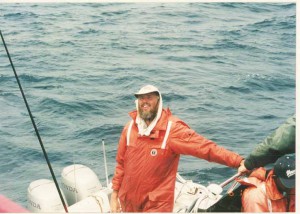 John Calambokidis
John Calambokidis Christopher Clark, Ph.D.
Christopher Clark, Ph.D.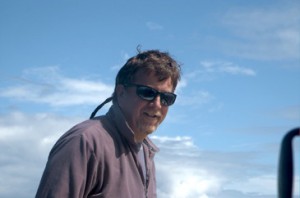 John Ford, Ph.D.
John Ford, Ph.D.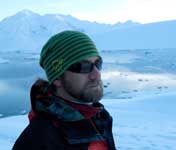 Ari Friedlaender, Ph.D.
Ari Friedlaender, Ph.D. Denise Herzing, Ph.D.
Denise Herzing, Ph.D. Tom Jefferson, Ph.D.
Tom Jefferson, Ph.D.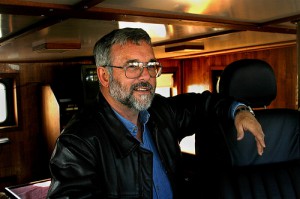 Bruce Mate, Ph.D.
Bruce Mate, Ph.D. 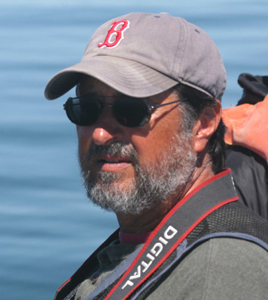 Steven L. Swartz, Ph.D.
Steven L. Swartz, Ph.D.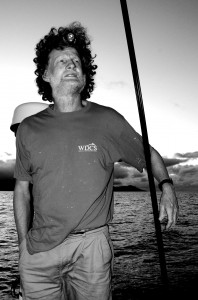 Hal Whitehead, Ph.D.
Hal Whitehead, Ph.D.